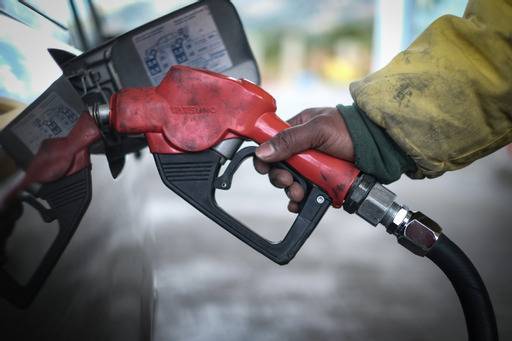
The head of the petroleum importers’ association said gasoline supply may last only about 15 days at the current distribution rate because the central bank has not yet approved fuel imports for the coming weeks. (Credit: João Sousa/L’Orient Today)
Want to get the Morning Brief by email? Click here to sign up.
Gasoline shortages should temporarily ease after tankers unloaded their cargo. Some 11 million liters of fuel are being distributed daily to gas stations across the country, the head of the petroleum importers’ association, George Fayad, told L’Orient Today. However, he warned that supply may last only about 15 days at the current distribution rate because the central bank has not yet approved fuel imports for the coming weeks. As drivers wait in long queues to fill their tanks, the gas station owners’ syndicate asked stations to open a special line for public transport vehicles.
Human rights groups called for an independent investigation into the Aug. 4 Beirut port explosion. Fifty-three Lebanese and international rights groups, as well as victims and survivors of the explosion, which killed more than 200 people and injured about 6,000 others, signed a letter urging the UN Human Rights Council to establish an independent investigation into the blast. The domestic probe has been dogged by allegations of interference and obstruction by the political class. Human Rights Watch said it has documented a “range of procedural and systemic flaws in the domestic investigation that render it incapable of credibly delivering justice,” while Amnesty International said, “The Lebanese authorities have obstructed, evaded, and delayed the ongoing domestic investigation.” Ten months on, no top Lebanese officials have been held accountable for the explosion despite mounting evidence that they had known about highly explosive material stored at the port at least weeks before the blast.
Customs seized some 250,000 Captagon pills allegedly intended to be smuggled to Saudi Arabia. The amphetamines were hidden in a shipment of electric water pumps at the Beirut airport, the Internal Security Forces said, adding that the Information Branch had arrested three suspects who allegedly admitted to receiving the shipment from Syria. The bust comes as Saudi Arabia is reportedly mulling a ban on all imports from Lebanon, an expansion of an embargo on Lebanese produce announced in April following the kingdom’s discovery of more than 5 million Captagon pills in a pomegranate shipment.
A joint parliamentary committee will meet this morning to examine Hassan Diab’s proposal to replace subsidies with a ration card program. Under the caretaker premier’s proposal, the state would transfer an average of $137 monthly to 750,000 of the country’s poorest families, costing about $1.24 billion for the first year. However, the source of funds remains hazy; lawmakers have asked the World Bank to reallocate some $1 billion undisbursed loans to fund the proposal. With several World Bank loans currently delayed because of the state’s inability to meet the bank’s requirements, Lebanon may be left with no choice but to dip into the central bank’s mandatory dollar reserves to finance the project, Diab previously said. Meanwhile, Parliament’s Administration and Justice Committee on Tuesday examined a long-promised law that aims to install an independent and transparent judiciary. The committee’s chair, Georges Adwan, said the MPs are scrutinizing the law, which has been with Parliament for about two years, to ensure that it does not contain any flaws.